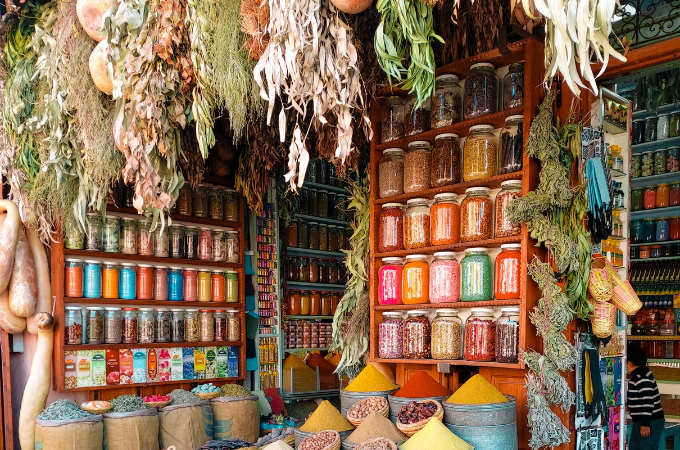
When Nigerians migrate to another country, there is an unofficial checklist of things to be done within the first month. Out of the fairly short list, three stand out as the most crucial. Get a sim card, find a church, and find an African store. It just seems to be the order of things. All three things serve very key roles in the socioeconomic integration process of Nigerian immigrants. A sim card because it allows one to localize. A phone number, asides from providing the opportunity to make and receive calls, gives one a sense of placement within the new land. After getting a sim card and announcing a relocation to friends and family via a WhatsApp number change, the next thing is to find a church.
One isn’t finding a church because they’re in dire need of fellowship with God, but because it is an opportunity to socialize and gauge what the community is like – how welcoming, and how diverse they are. Any church might do for the first few weeks, but sooner or later, one realizes western religion is dull, uninviting, and lacks the vigour of religion back home. But that late realization might only just delay their integration process and discovery of community – because that’s the essential purpose of the church, to help foster a home base, a social anchoring, and a resourceful hotspot to make friends and allies.
After church, the next on the list is to find an African store. Though critical, it could take some time to eventually get to, seeing as Nigerians migrate well equipped with enough seasoning spices, and local food items needed for daily consumption. While all three steps are important, I believe, finding an African store might be the most important of them all.
***
In Nigeria, a ‘grocery’ store, is more commonly structured as an open space market with many vendors cajoling you with sweet, sometimes aggressive words, to purchase their version of the same products their competitors sell. Don’t be confused, there are actual grocery stores housed in buildings and concrete structures like that of western stores, but those types of stores are not first choice stores for many Nigerians. Why buy overpriced, stale, imported groceries when you can buy cheaper, fresh, locally produced groceries?
Dominated by women, market vendors have a titillating way in which they lure customers in. A stroll through the market – if you’re one who is easily swayed by words – will leave you floating through the air. This is how it usually goes: you stroll into the market space and are greeted by the sounds of vendors and customers chatting, vendors exchanging words at the top of their voices, and music humming below all that noise from an unidentifiable speaker somewhere. The sounds aren’t the only thing disconcerting about the market, your nose also struggles to identify the mix of smells that linger in the air. A hint of fresh blood and meat, fresh fish somewhere in the mix, and a dash of live chickens. As you stroll, you start to hear chants from far and near, all directed at whoever’s ears are at attention.
“Fine mummy, come and buy your tomatoes here, I will give you special price,” the old lady with mismatched eye shadow will call out.
“Sisi Eko! I have your size of pant and bra, the type your bobo will like in the bedroom,” the young underwear seller will call out also. A tempting offer as her store is lined with displays of colorful, racy, lace undergarments, creating an interesting sight to behold.
“Ah ah customer, you said you will come back and buy from me, come now, I have already packed your goods,” another vendor, who you have never met, as it could even be your very first time in the market, will also say to you – who has most likely also been following you from the moment they sighted you.
Depending on one’s willpower, it’s easy to spend hours in the market, regardless of how big or small the market is. A large market is more likely to eat into your shopping time because of the abundance of options, while a smaller market is more likely to consume your day as a result of conversations. Smaller markets are found in residential areas, it could be by a bus stop, by the entrance of an estate, or even by a church. A market is actually a loose term to define any cluster of vendors. A market to one community could be a five-vendor line of essential products like tomatoes, pepper, onions, plantains, and yams. To another community, it could be a 50-vendor cluster with more aperiodic items like fruits, meats, kitchen equipment, and home essentials. A smaller market means intimate relationships between vendors and customers. Because these markets are found in residential areas, it’s not uncommon for these relationships to be near-familial, generational even. Depending on the longevity of the market or the vendor’s business, a grandmother, mother, and daughter could all patronize the same market or vendor over time or simultaneously in some instances. Regardless of how close-knit these relationships are, it usually remains cordial, with the vendor and customer referring to each other as ‘my customer.’
This is how it could go: As you stroll through your most frequented market, you could be apprehended by an overzealous plantain seller, “My sister come and buy fresh plantain, they will be ripe by tonight,” she would say. Maybe she’s new to the market and doesn’t recognize that you are no first-timer, or perhaps she’s feeling lucky enough to snag a new customer. You don’t bother to eye her kiosk because that alone would be disrespectful to your vendor.
“I have my customer down the road waiting for me, thank you,” you say politely, avoiding eye contact and forging forward as you then make it to your vendor’s stall.
“Ahhh my customer!” your vendor greets enthusiastically, depending on her age and physical abilities, she might jump up to show you her newest batch of plantains, or bubble with excitement on her low stool. “How is the family, how is mummy? I haven’t seen her in a while o, even you sef, have you people travelled?” she continues genuinely.
“Noo we’re still here, I have been in school, I just got back,” you answer with a beam. That conversation could last anywhere between 5 to 15 minutes before you are able to pull away.
The market experience is no different in other African countries I imagine, it is also no different in the African store opposite the Victoria Ballet Academy on Quadra Street. The one-stop shop for Africans in the little city of Victoria on Vancouver Island. The quaint, usually stuffy store has become an extension of home to many families in Victoria. It’s a piece of home to the newly married interracial couple that drives in from Duncan every two months to stock up on groceries, and to the obnoxious spinster who comes every Saturday to refill his peanut burger stash. It’s home to the local pastor, his wife, and newborn baby boy who come in biweekly to buy pounds of meat and fish, and restock what seems to be their own mini market. And it’s a piece of home to my sisters who – on orders from my mom – stop by spontaneously to purchase one-off items. A bag of beans here and a bottle of palm oil there.
***
The first time I stopped by the African store was sometime in 2019 – during a family visit to Victoria. My dad, sisters, and I were on a hunt for Banku. The fermented ground maize and cassava flour was my dad’s latest healthy meal obsession. I suspect his newfound obsession for this had spurred from a video broadcast sent by one of his healthy-meal-obsessing friends on their healthy-meal-obsessing WhatsApp group. My time there was unremarkable, I was unimpressed by the westernized substitutes of food items I had purchased and consumed in their natural form. Pyramids of rice and sundried, powdered cassava, maize, and other legumes had been substituted for double-layer carton packaging. Slabs of fresh, bloody meat – in front of live chicken, goat, and cattle pens – had been neatly substituted for frozen, clear-bagged, pre-weighed packs. I scoffed at the scarce supply of food items and the exorbitant prices of it all. A sachet of tomato paste which would ordinarily cost 50 Naira (15 cents) was being sold for 4 CAD (1,000 Naira). “God forbid bad thing” I often whispered to myself as I browsed the store.
What I failed to realize then and couldn’t have until I moved to Victoria a few years later, was that it wasn’t about the cost of items or the bountiful supply. “You can go there knowing you have a sense of belonging, knowing you don’t feel out of place,” my sister Kelechi, an involuntarily frequent customer of the African store told me. Being the only physical African store in the city places the store and the shopping experience on a pedestal. The store caters to the 3,825 Africans in Victoria and a few hundred in the neighbouring cities of Duncan and Sidney.
I began to see what Kelechi meant when I volunteered at the store in 2022.
***
I decided to volunteer at the Island African store sometime in February of 2022. I was having a rough integration process because I ignored the sacred checklist. I ignored the checklists – by force really – because my family had already done the groundwork before my arrival. When my family moved in 2019, my mom was quick to find a Nigerian church well before they arrived at the airport, acquire a sim card on the first week of arrival, and find the African store through a friend in church. Ignoring my individual duty to follow the checklists and deciding to wing things might have played a huge role in how tumultuous the social integration process was for me. In my defence, I had danced between Nigeria and Canada for a few years before finally moving to Canada at the tail end of 2021.
I was living – and enjoying – the best of both worlds at the time. Having my family in Canada, while completing my undergraduate degree in Nigeria, allowed me to relish the social leverage that frequent travels abroad offered me. A global citizen it made me. In Nigeria, I was free to indulge in Lagos’ pulsating social scene and establish my name and career autonomously. In Canada, I enjoyed the pleasures of western convenience and serenity. Whenever I spent time with my family in Canada, I relied on my family’s established social structure which unknowingly tainted the process of establishing my social independence.
I had attended church numerous times with them, allowing myself to get superficially acquainted with church members, confident I wouldn’t need any relationship deeper than that. I never needed a sim card because my true placement was at home, in Nigeria. I never cared for the idea of an African store because I had abundant access to the source of all variations of local spices, legumes, oils, leaves, and flours that the African store attempted to provide.
It didn’t take long after my arrival in Canada before I started to long for all the things the checklist was supposed to help satisfy. A sense of placement, social anchoring, and a pool of peers. “But you had your family with you, what more placement do you need?” others may rightfully ask. From my many sleepless nights of trying to uncover the layers of displacement I feel (felt?) I’ve come to realize placement cannot be created and sustained by immediate family alone. It’s a sense of connection and belonging beyond your family home and within the land.
Understanding that my family home and the African store were the only two places in the entire Victoria that had any semblance of what my real home looked, smelt, and felt like; I decided to take up some form of residency there. Volunteering at the store meant two things to me, I could right my initial wrongs by finally finding a pool of like-minded peers while being couched in a bubble of home.
***
Bound by a sense of duty, not just to myself but to the customers of the store, I was committed to creating a bubble of joint familiarity in the store. I wanted anyone who wandered into the store – be it an established Kenyan migrant in search of Ugali for dinner, or a new immigrant faithfully adhering to their checklist – to relish the feeling of belonging the store offered.
On some days, they are subject to the conversations plaguing radio stations back at home. “Who should get the front seat? Your mother or your wife? What do you think Gigi?” the radio host poses to his co-host.
“I can’t believe we’re still having conversations like this in 2022,” Gigi, the co-host responds.
“That’s Twitter for you, the most ridiculous but interesting conversations come up every day, personally I think my wife and mother should sort it out between themselves before reaching the car,” the host laughs. “Let’s hear what our audience thinks, call in on 080-9699-6996. Who do you think should sit in the front, your wife or your mother?” he asks again before taking calls.
Conversations like these earn you a quick chat from some customers, but the days they’re greeted by the rambunctious sounds of Afrobeat or Amapiano, depending on my mood, there’s bound to be a comment or two from every customer that comes in. I savoured the knowing smirks and head bops they gave as they wandered the store. The warmth from their smiles became a confident booster. Knowing my efforts were effective and appreciated made me take a step further to initiate conversations.
***
I never did fully appease the immigration gods. I never felt settled in Victoria, despite all my efforts. I accepted my fate a few months after and allowed myself to enjoy my time with my family instead. The store did give me some sense of placement, a comfort that I wasn’t entirely alone in this new country, but it wasn’t enough. Helping others satisfy what I longed for wasn’t enough and I stopped trying at some point. In the few months I volunteered there, I’m happy to have forged a connection with a good number of the hundreds of customers that trickled into the store daily. I could proudly call out “Customer!” when a few familiar faces walked in. Although I never actually called anyone out by that term, the knowing smile we shared echoed what we felt.
Now in Vancouver, I am thankful to have been presented with a second chance to follow due process. Despite feeling a better sense of belonging and social anchoring – thanks to the Nigerian church I now attend, and a myriad of African stores at my disposal – I still can never feel fully at home in another man’s land, or maybe it’s just Vancouver. I now dream of testing the gods once more and being granted a third chance to follow due process, perhaps in a city where what I long for will come with ease, where I am somehow freed from the constraints of the sacred list.
Photo by zakariae daoui on Unsplash





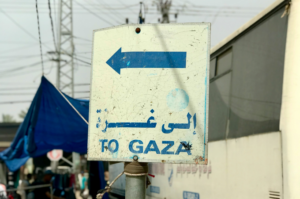
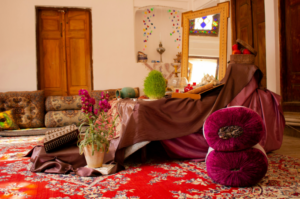
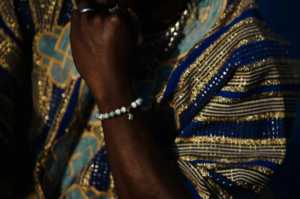
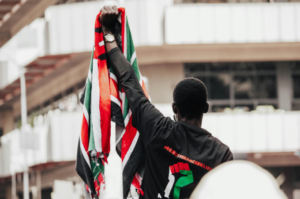

Aanuoluwapo Adesina June 06, 2023 05:23
Kikachi's CNF piece, "Every Day Is a Market Day," excellently presents the hunger experienced by migrants to establish a home away from home and a sense of stability in the ever-teetering landscape of their host nation. It gives its reader a deeper appreciation for the gift of a space where "you have a sense of belonging, knowing you don't feel out of place," especially when the feeling of isolation is often costlier than a thousand-naira-sachet of tomato paste.